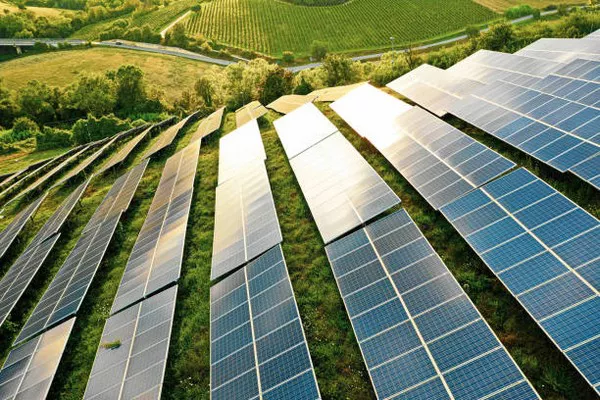Solar panels, often perceived to have a limited lifespan based on manufacturer warranties, could outlast their “use by” dates, according to new innovations aimed at extending their utility. Globally, experts are rethinking the longevity of solar panels, seeking to keep them in operation for another decade or more, reshaping both the recycling landscape and engineering priorities.
Circular Economy for Solar Panels: A New Approach
At the forefront of this shift is SolarCycle, a Texas-based company leading efforts to recycle and reuse solar panels. The company has constructed a 500 kW solar array in Odessa, Texas, using panels entirely made from recycled materials. The array, dubbed the first to fully “close the loop” in solar recycling, relies on panels sourced from homes and businesses such as Sunrun and Ørsted. Once these panels reach the end of their extended life, typically in another five to 10 years, they will be sent back to recycling facilities for repurposing.
This initiative demonstrates the potential to reclaim valuable materials from electronics destined for landfills, reinforcing the concept of a circular economy in solar technology. Addressing the failure to recycle metals and other key materials, the project seeks to boost public confidence in solar’s sustainability. Engineers and designers involved in solar projects are now encouraged to adopt strategies that make electronics easier to dismantle, remove hazardous materials, extend product life, and improve recycling methods.
Rethinking Solar Panel Lifespan
SolarCycle’s Odessa project redefines what it means for solar panels to reach the end of their life. Even after 25 years of use, when most panels start to decline, they still generate about 80% of their initial output. This leaves substantial room for re-use before the materials are fully recycled, making it clear that a solar panel’s value extends far beyond its warranty period.
Challenges in Decommissioning Solar Panels
As the industry looks to extend the life of panels, solar engineers are also focusing on the challenges of decommissioning older systems. Innovations such as building-integrated photovoltaics (BIPV), which embed solar panels into the structure of buildings, present unique difficulties in decommissioning. The removal and replacement of these integrated systems require flexible construction methods, which could become more critical as solar technology evolves.
Furthermore, solar panel manufacturers and engineers face obstacles in determining the future uses of decommissioned panels. Land use conflicts, project delays, and inconsistent policies around recycling and disposal will likely remain significant hurdles. These complexities raise questions about the responsibilities of different parties during the decommissioning process, from transportation to proper disposal.
Industry-Wide Changes on the Horizon
Decommissioning projects are poised to become more common, particularly in regions with high initial installation costs or limited solar access. Engineers predict that floating solar arrays—systems installed on bodies of water—will gain popularity as they make renewable energy more accessible to densely populated areas. However, this shift will require rethinking where and how specific panels are used, as different setups, like floating solar, offer higher energy gains compared to traditional land-based installations.
Industry experts also advocate for retrofitting existing panels with updated technologies like transformers and inverters to extend their useful life. Yet, many argue that reclaiming land, incorporating new equipment, and rehoming older panels to different applications is a more effective solution. Several states have already begun mandating decommissioning plans for solar projects to ensure sustainability.
The Future of Solar Decommissioning
As solar panel recycling and repurposing efforts grow, the industry is moving towards a future where panels could last over 50 years before being retired. Some experts envision new technologies that might enable solar panels to remain operational for nearly a century. Secondhand panels are expected to become a standard feature in the sector, helping ease the pressure on growing recycling infrastructures.
SolarCycle’s pioneering project signals a major shift in how solar panels are viewed—not as disposable products, but as resources that can be reused, repurposed, and recycled, contributing to a more sustainable and circular economy.
You Might Be Interested In

